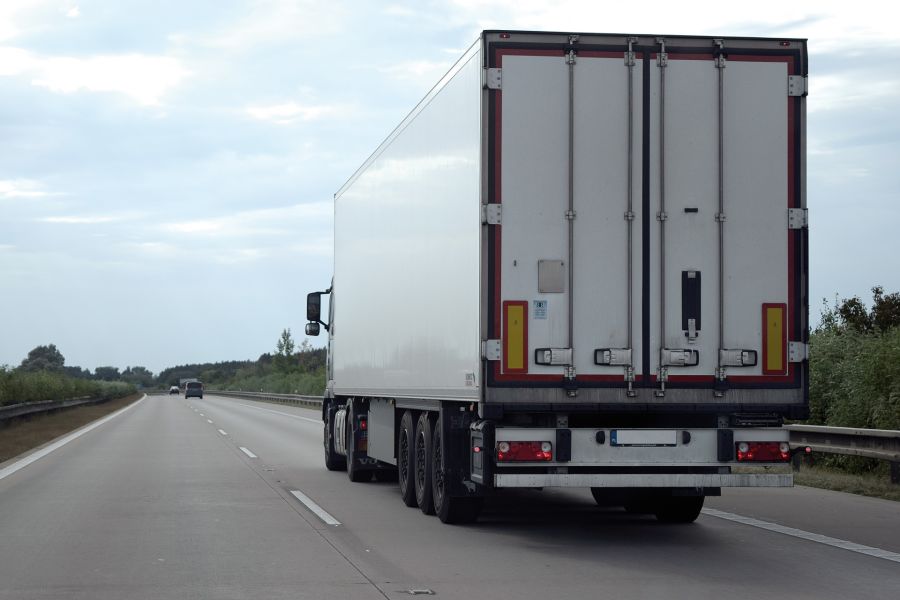Picture this: after weeks of packing up your house or apartment, it’s finally moving day. Your movers pull up and start loading your possessions into the back of the truck, and you hop into your car and head off to your new home. A few minutes later, your moving truck rolls in behind you. The brawniest mover hops out of the cab, but instead of unloading your stuff, he tells you you need to fork over a cash fee before they’ll start unloading your belongings, and if you don’t, they’ll drive off with your stuff and charge you even more money to store your things.
This may sound like a nightmare situation, but the “holding your stuff hostage” scam is an unfortunately common racket, especially for interstate moves. While states are responsible for regulating local moves, the Federal Motor Carrier Safety Administration (FMCSA) - whose main purpose is to reduce truck and bus crashes, injuries, and fatalities - is in charge of overseeing interstate moves, and there are simply fewer resources devoted to moving regulation and enforcement at the federal level.
The best way to protect yourself against moving scams is to do your homework before you book, and keep your eyes peeled for common warning signs. Here are some of the most common moving scams and what to look for so you can avoid them:
Scam #1: Super low rates
This is one of the most common moving scams because it’s such a tempting trap to fall into. In this situation, a moving company will suck you in by giving you a super low quote in order to get you to book immediately, then when your movers arrive, the rate is suddenly higher or there are new additional charges beyond your original agreement. At this point, you’ll often have no choice but to pay the additional fees because chances are, you’ll have to be out of your place that day.
| PRO TIP: Always be wary of a super low rate. Even if it isn’t a scam, ultra-low rates will often indicate the level of service you’ll get. |
For local moves, never agree to pay a flat rate, even if it is significantly lower than other quotes - your movers may be tempted to squeeze your move in as quickly as possible to maximize profit while minimizing the amount of work they actually have to do. If you’re moving long distance, flat rates based on the size and/or weight of your move are more common.Avoiding this popular scam is fairly straightforward. Instead of booking right away, have the moving company send all the billing and contract information to you in writing, including information about extra fees.
Scam #2: Holding your stuff hostage
Don’t get sucked into the nightmare scenario we outlined above! Any way you look at it, holding your stuff hostage is theft. If your movers refuse to unload your stuff unless you pay more, or if they threaten to keep the bill running or charge extra storage fees if you refuse to pay, calmly tell them that you’re going to go get the cash or stop by an ATM, then call the police.
No matter how reputable your moving company seems, get the first and last names of those handling your move, as well as a cell phone number and the license plate number of the truck before you depart, just in case you need police assistance. And if there were no unexpected developments like limited road access or long carries, never agree to pay the extra fee.
Scam #3: Not getting an in-person quote
Most people underestimate the amount of stuff they have to move, which is why it’s important for moving companies to do an in-person inspection of your move to create an accurate, informed estimate of the cost.
For large household moves, get an in-person quote from at least three movers. In addition to indicating their professionalism and experience, having the moving company assess the size of your move before you book helps to avoid any last-minute fees, and will also ensure that your move goes according to schedule, which means you can avoid any additional costs associated with unexpected delays.
If your moving company doesn’t do in-person quotes, make sure you provide detailed information about the size of your house, your furniture, the number of boxes, and the types of things you’ll be moving.
| PRO TIP: Make sure the estimator looks inside your cupboards and closets in order to get an accurate idea of how much stuff you actually have to move. |
Scam #4: Operating under multiple company names
If you're shipping your stuff using an LTL shipper, don't worry if your shipping company doesn't provide an in-person quote. In-person quotes are less common for LTL shipping.
Some movers skirt bad reviews and histories of bad service by simply changing their company name. This scam can be difficult to spot, so keep an eye out for these warning signs:
- No local address: Make sure the company has a local address. Look them up on Google Maps - if the business address is a house, this could be a red flag.
- No landline: If the phone number listed is a cell phone instead of a landline, this should also set off some alarm bells.
- Phone etiquette: The company should answer the phone in a professional answer, and they should also answer with the proper name of the business.
- Unmarked trucks: There’s no reason why a moving company wouldn’t want to put their logo on their trucks, since it’s basically a rolling ad. Unmarked trucks are a big red flag.

You can avoid this scam by asking the moving company in question for references, preferably from recent moves in your area. You should also do an online search to find reviews of the company - this is your best indication of the quality of service they’ll provide.
Scam #5: Up-front deposits
If you pay an up-front deposit, there’s no guarantee your stuff will actually be delivered or that your movers will even show up, and you lose your leverage in case something goes wrong. Reputable moving companies won’t require a cash or large up-front deposit before you move - typically, you’ll only pay upon delivery. And if you can, don’t pay in cash.
If you're shipping some or all of your stuff to your new home, it's common for long-distance shippers (like TSI!) to charge a 50% deposit up front.
Scam #6: Cash only
Movers should always be flexible in terms of how they can accept payment. If they demand cash only, take a pass and find a different moving company.
Scam #7: Blank contracts
When you sign a blank contract, you’re basically taking your moving company’s word that they’ll fill in the blanks properly. In theory, they could inflate the weight and distance of your move after the fact, leaving you without a legal leg to stand on.
Never sign a blank contract. Always get everything in writing before you sign, including your quote and all extra fees, as well as pick-up and delivery dates, so your movers can’t change the terms of your agreement. Make sure you read the contract from top to bottom before you sign, and that all your belongings are listed, especially valuables like electronics, antiques, and sentimental items. You can’t file a claim for something that doesn’t appear on your contract.
Scam #8. Guaranteed quotes
There are two types of moving contracts available according to federal law:
- Non-binding contracts: In a non-binding contact, the company cannot require payment of more than 10% above the original estimate, usually due within 30 days of delivery.
- Binding contracts: Binding contracts set a guaranteed price for your move, including all fees and extras. If additional services are requested or required, the extra fee will be due within 3 days of delivery.
There’s nothing inherently scammy about a binding (or non-binding) contract, but always read the fine print. Most binding contracts include clauses that negate the terms if you exceed the estimated weight of your belongings, which can lead to large unexpected fees.
Scam #9: Extra fees and hidden costs
It’s not uncommon for movers to charge additional fees for heavy or bulky items, or for long carry or stairs. Just make sure you ask about these fees before you sign a contract, and make sure the fees are guaranteed so they don’t suddenly increase on moving day. Ask to read the Terms and Conditions and, as always, read your contract thoroughly before you sign!
How NOT To Get Scammed
Being aware of common moving scams can help you avoid falling into one of these traps. Following these tips will also help safeguard your move:
- Do your research. Ask your friends and family for recommendations, and read as many online reviews as you can, especially if the quote seems too good to be true. Trustworthy movers will take pride in getting good reviews. You should also contact the Better Business Bureau to find out if anyone has complained about or reported your prospective movers.
- Use common sense. If you’re getting a weird vibe or if you can’t find a business address or a landline phone number, don’t book with that mover.
- Ask about insurance. A reputable mover will be able to explain (and provide additional documentation) what happens if your stuff is damaged in transport.
- Read everything before you sign. Make sure your contract explicitly outlines pick-up and delivery dates, as well as all additional fees and the final cost of your move.
- Sign the contract before the truck is loaded. Some scammers will start loading the truck before a contract is signed, often starting with your most valuable items, so it’s easier to hold your stuff hostage.
- Request licensing information. Your movers should be able to provide written documentation of their business license, especially for interstate moves.
- Take photos of valuable items. Taking photos of valuable or sentimental items before they’re loaded on the truck gives you indisputable proof of the condition of your stuff before you move in case something is damaged in transit.
- Listen to the FMCSA. The FMCSA has created a checklist for what to look for in a moving company to help you avoid getting scammed. Download it, and make sure your movers are up to snuff before you book.
Get Ready to Move!
Moving scams are unfortunately common, especially for interstate moves. For fiscal 2017, less than 1% of the FMCSA - the federal organization in charge of regulating interstate moves - budget was allocated for interstate moving enforcement. Learning about common moving scams and watching out for the warning signs is your best line of defense.




